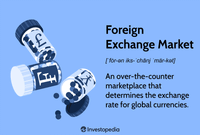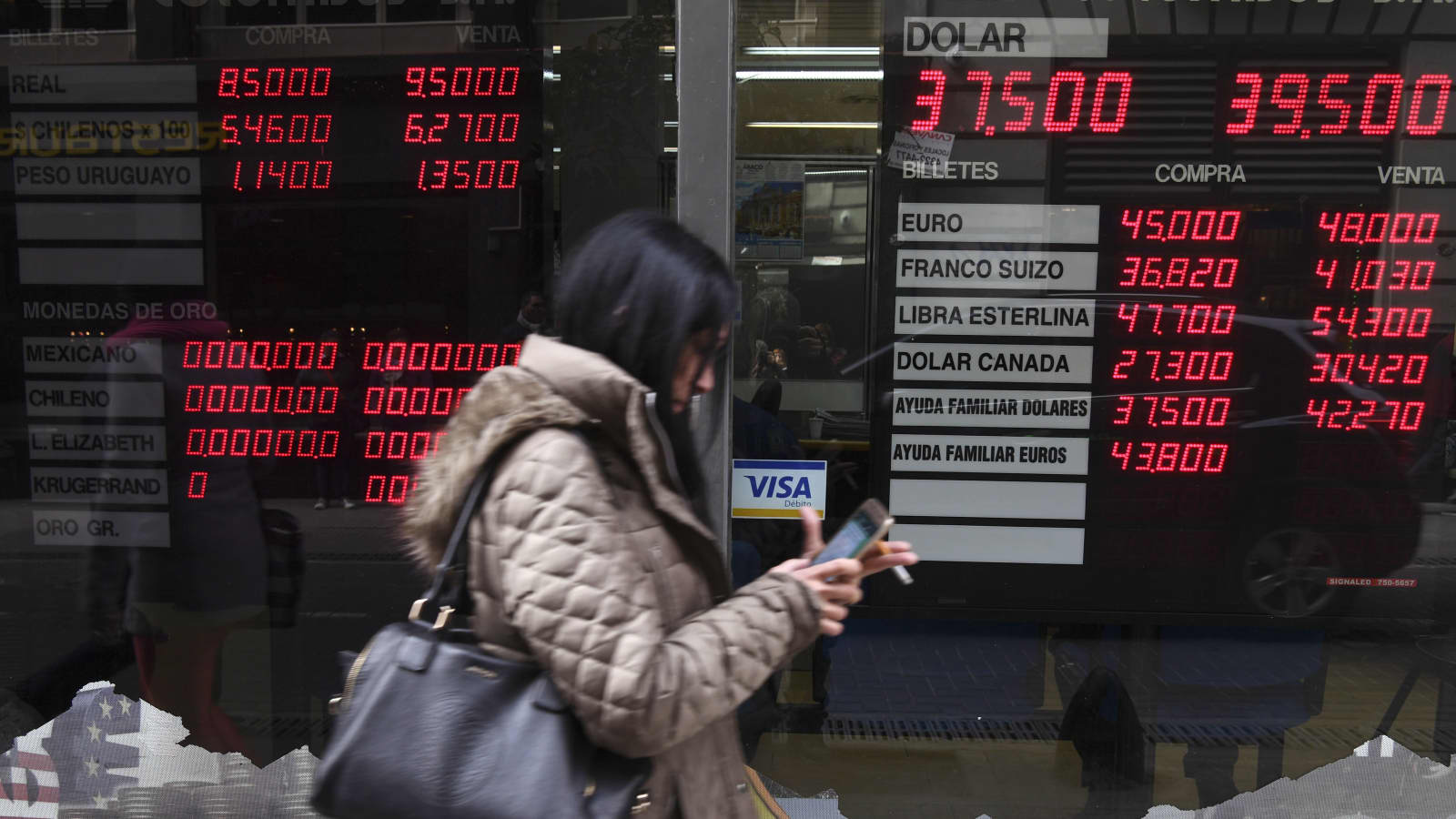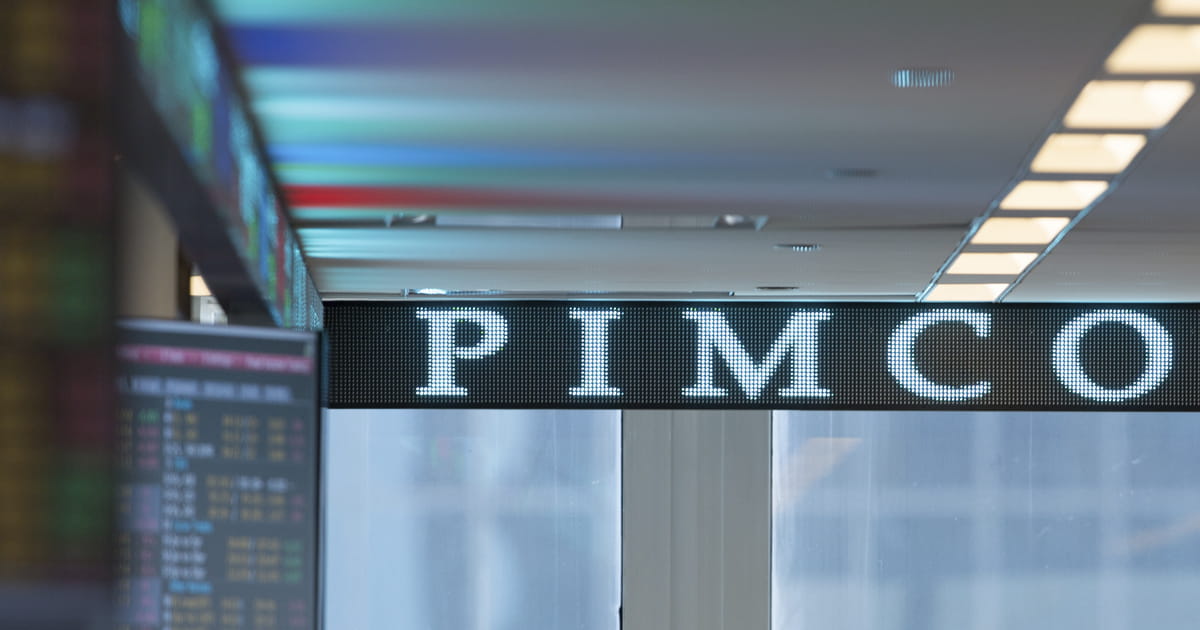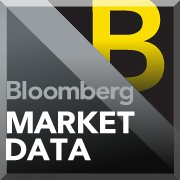Explora los resultados de búsqueda web relacionados con este dominio.
The foreign exchange market (forex, ... is a global decentralized or over-the-counter (OTC) market for the trading of currencies. This market determines foreign exchange rates for every currency. It includes all aspects of buying, selling and exchanging currencies at current or determined prices.
The foreign exchange market (forex, FX (pronounced "fix"), or currency market) is a global decentralized or over-the-counter (OTC) market for the trading of currencies. This market determines foreign exchange rates for every currency. It includes all aspects of buying, selling and exchanging currencies at current or determined prices. In terms of trading volume, it is by far the largest market in the world, followed by the credit market. The main participants in this market are the larger international banks. Financial centers around the world function as anchors of trading between a wide range of multiple types of buyers and sellers around the clock, with the exception of weekends.Since currencies are always traded in pairs, the foreign exchange market does not set a currency's absolute value but rather determines its relative value by setting the market price of one currency if paid for with another. Ex: 1 USD is worth X CAD, or CHF, or JPY, etc. The foreign exchange market works through financial institutions and operates on several levels.Most foreign exchange dealers are banks, so this behind-the-scenes market is sometimes called the "interbank market" (although a few insurance companies and other kinds of financial firms are involved). Trades between foreign exchange dealers can be very large, involving hundreds of millions of dollars. Because of the sovereignty issue when involving two currencies, Forex has little (if any) supervisory entity regulating its actions.In a typical foreign exchange transaction, a party purchases some quantity of one currency by paying with some quantity of another currency. The modern foreign exchange market began forming during the 1970s. This followed three decades of government restrictions on foreign exchange transactions under the Bretton Woods system of monetary management, which set out the rules for commercial and financial relations among the world's major industrial states after World War II.The foreign exchange market is the most liquid financial market in the world. Traders include governments and central banks, commercial banks, other institutional investors and financial institutions, currency speculators, other commercial corporations, and individuals.


Bloomberg delivers business and markets news, data, analysis, and video to the world, featuring stories from Businessweek and Bloomberg News on everything pertaining to markets
As US debt balloons, firms that play a vital role in ensuring the biggest bond market works properly warn of the risk of growing pressures. Turkish Brewer Anadolu Efes Extends Slump After Russia JV Decree · Transnet South Africa Posts Wider Loss Citing Hampered Recovery · PBOC Steps Up Liquidity Injection With New Tools At Year-End · European Gas Rises on Anticipation of Ukraine Transit Expiring · Indonesia Faces Costly Biofuel Expansion After Palm Oil Surges · South Africa’s Rand Emerges as a Leading EM Currency First Time in Eight YearsDonald MacKenzie talks to insiders and dives into history to explore how markets are shaped by ideas—and vice versa.Singapore’s Cautious Wealth Fund Takes More Private Markets RiskHomeBTV+Market DataOpinionAudioOriginalsMagazineEvents

Prediction markets are quicker to respond to new events than polling, and bettors are often highly informed participants keeping close tabs on the race.
Markets · Stocks: Most Actives · Stocks: Gainers · Stocks: Losers · Trending Tickers · Futures · World Indices · US Treasury Bonds Rates · Currencies · Crypto · Top ETFs · Top Mutual Funds · Options: Highest Open Interest · Options: Highest Implied Volatility · Sectors · Basic Materials · Communication Services · Consumer Cyclical · Consumer Defensive · Energy · Financial Services ·Currency Converter · Investment Ideas · Research Reports · Personal Finance · Credit Cards · Balance Transfer Cards · Cash-back Cards · Rewards Cards · Travel Cards · Credit Card Offers · Banking · CD Rates · Best HYSA · Best Free Checking · Student Loans · Personal Loans · Insurance · Car insurance · Mortgages · Mortgage Refinancing · Mortgage Calculator · Taxes · Videos · Morning Brief · Catalysts · Wealth · Market Domination ·While they're not without their misses — they were notably wrong during the 2022 midterm elections, and after Biden won the 2020 election — Rutgers University statistics professor Harry Crane says prediction markets are historically more accurate than traditional polling.PredictIt, a project founded by researchers in New Zealand, has operated in the US under a no-action letter from the Commodity Futures Trading Commission since 2014, but limits American bettors to up to $850 in wagers, and only 5,000 betters can participate in each market.
Although the Bretton Woods System ... global markets today, such as the International Monetary Fund (IMF), the World Bank and the World Trade Organization (WTO).4 · These organizations facilitate international transactions and set standards among governments and commercial banks.
Although the Bretton Woods System dissolved in the early 1970s, it launched the institutions that still shape global markets today, such as the International Monetary Fund (IMF), the World Bank and the World Trade Organization (WTO).4 · These organizations facilitate international transactions and set standards among governments and commercial banks. Fluctuations in exchange rates and other volatile factors, however, still drive disparities in global economies despite institutional oversight. A key factor in international finance is the concept of the currency exchange rate.Trade deficits are not necessarily indicative of a distressed economy, but they can have consequences for the global market. International financial organizations strive to address deficits and surpluses with fiscal policies, incentives and currency devaluation.Currencies, bonds, equities and commodities are all traded in international markets, driving economic growth and diversifying investment portfolios for individuals and organizations. It’s impossible to discuss international markets without acknowledging the role of emerging economies. As historically poor nations take a more active role on the global stage, they bring about new investment opportunities and drive economic growth across sectors.7Floating currencies, such as the U.S. Dollar, rise and fall with market changes.5 There are advantages and disadvantages to each type. Developing economies, for instance, typically choose a fixed, or pegged, exchange rate regimen to establish stable growth. Neither system is perfect, and part of a thorough financial education is understanding the impact and function of each type.


The foreign exchange market is an over-the-counter (OTC) marketplace that determines the exchange rate for global currencies. It is, by far, the largest financial market in the world and is made up of a global network of financial centers that transact 24 hours a day, closing only on the weekends.
The foreign exchange market—also called forex, FX, or currency market—was one of the original financial markets formed to bring structure to the burgeoning global economy. This asset class makes up the largest financial market in the world in terms of the value of currency units being traded.This determines how much of country A’s currency country B can buy, and vice versa. Establishing this relationship (price) for the global markets is the main function of the foreign exchange market. This also greatly enhances liquidity in all other financial markets, which is key to overall stability.Free-floating currencies include the U.S. dollar, Japanese yen, and British pound, while examples of fixed floating currencies include the Panamanian balboa and the Saudi riyal. One of the most unique features of the forex market is that it’s made up of a global network of financial centers that transact 24 hours a day, closing only on the weekends.Foreign exchange markets serve an important function in society and the global economy. They allow for currency conversions and facilitating global trade (across borders), which can include investments, the exchange of goods and services, and financial transactions.
Will institutional money figure out bitcoin's "infinite money glitch" and its role on corporate balance sheets?
Bitcoin has achieved a 1.3 trillion dollar market cap and boasts hundreds of millions of users, but it is still met by some with skepticism, fear, and even disdain. Detractors label it a tool for criminals or speculative gamble with no real future in the global financial system.Moreover, as bitcoin becomes more widely adopted, its liquidity and market infrastructure continue to improve, making it easier for institutions to buy, sell, and hold large quantities without disrupting the market. MicroStrategy’s move to adopt bitcoin as a core treasury asset highlights the growing realization that bitcoin’s potential is far greater than many initially believed. The company’s innovative approach to leveraging both global liquidity and Bitcoin’s scarcity has not only outperformed traditional financial strategies but also demonstrated how Bitcoin can provide a strategic advantage in an inflationary fiat environment.In 2020, MicroStrategy's CEO, Michael Saylor, made headlines when the company announced it had converted its cash reserves into bitcoin, citing the long-term devaluation of fiat currencies and the need for a harder asset to preserve wealth. This decision was not just an isolated bet on bitcoin's future value but part of a larger strategy to capitalize on the unique properties of bitcoin as both a store of value and a strategic financial asset.Larry Fink, CEO of BlackRock, has recently positioned himself as a prominent advocate. Once a skeptic, Fink now believes bitcoin is on the path to becoming a standalone asset class, comparable to other financial innovations that began slowly and later scaled, such as the mortgage and high-yield bond markets.

The foreign exchange, also known ... largest financial market in the world with a daily volume of $6.6 trillion. Forex is the digital site where one currency is exchanged for another. The forex market has a lot of unique attributes that may come as a surprise for new traders. Consider teaming up with a good forex broker if you're new to the game and want to engage in some currency trades. The foreign exchange, also known as FX or the forex market, is a global marketplace ...
The foreign exchange, also known as FX or the forex market, is the largest financial market in the world with a daily volume of $6.6 trillion. Forex is the digital site where one currency is exchanged for another. The forex market has a lot of unique attributes that may come as a surprise for new traders. Consider teaming up with a good forex broker if you're new to the game and want to engage in some currency trades. The foreign exchange, also known as FX or the forex market, is a global marketplace for exchanging national currencies against each other.Market participants use forex to hedge against international currency and interest rate risk, to speculate on geopolitical events, and to diversify portfolios. Major players in this market tend to be financial institutions like commercial banks, central banks, money managers, and hedge funds. Global corporations use forex markets to hedge currency risk from foreign transactions.The volume of forex trades made by retail investors is extremely low compared to financial institutions and companies but it's growing rapidly in popularity. Investors base currency trades on a combination of fundamentals such as interest rate parity, inflation rates, monetary policy expectations, and technical factors including support, resistance, and price patterns. The resulting collaboration of the types of forex traders is a highly liquid, global market that impacts businesses around the world.Forex is the largest market in the world because it empowers everyone from central banks to retail investors to potentially see profits from currency fluctuations related to the global economy. Various strategies can be used to trade and hedge currencies such as the carry trade which highlights how forex players impact the global economy. The reasons for forex trading are varied. Speculative trades executed by banks, financial institutions, hedge funds, and individual investors are profit-motivated.

The People's Bank of China emphasized the Mbridge platform’s role in improving cross-border payments through the use of central bank digital currencies (CBDCs), aiming to reduce inefficiencies and avoid new barriers.
The foreign exchange market is an over-the-counter (OTC) marketplace that determines the exchange rate for global currencies. It is, by far, the largest financial market in the world and is made up of a global network of financial centers that transact 24 hours a day, closing only on the weekends.
The foreign exchange market—also called forex, FX, or currency market—was one of the original financial markets formed to bring structure to the burgeoning global economy. This asset class makes up the largest financial market in the world in terms of the value of currency units being traded.This determines how much of country A’s currency country B can buy, and vice versa. Establishing this relationship (price) for the global markets is the main function of the foreign exchange market. This also greatly enhances liquidity in all other financial markets, which is key to overall stability.Free-floating currencies include the U.S. dollar, Japanese yen, and British pound, while examples of fixed floating currencies include the Panamanian balboa and the Saudi riyal. One of the most unique features of the forex market is that it’s made up of a global network of financial centers that transact 24 hours a day, closing only on the weekends.Foreign exchange markets serve an important function in society and the global economy. They allow for currency conversions and facilitating global trade (across borders), which can include investments, the exchange of goods and services, and financial transactions.
:max_bytes(150000):strip_icc()/foreign-exchange-markets.asp-final-16abed069d5e4ba0924142476dec4211.png)

Bloomberg delivers business and markets news, data, analysis, and video to the world, featuring stories from Businessweek and Bloomberg News
Following human eggs as they’re exchanged across open, gray and black markets — reaping rewards for an extremely high price. By Natalie Obiko Pearson, Jessica Brice, Susan Berfield, Vernon Silver, Kanoko Matsuyama, Cindy Wang and Sinduja Rangarajan · The Global Fertility Trade: A Story of Extraction, Exploitation and OpportunityThe Year AheadWhere to Go in 2025As US debt balloons, firms that play a vital role in ensuring the biggest bond market works properly warn of the risk of growing pressures.Donald MacKenzie talks to insiders and dives into history to explore how markets are shaped by ideas—and vice versa.Singapore’s Cautious Wealth Fund Takes More Private Markets Risk
Persistent rate increases in the United States may be having very negative impacts on the global economy.
Persistent rate increases in the United States may be having very negative impacts on the global economy. When well over 100 nations see the value of their currencies drop it is highly unlikely that the United States can pursue its economic goals unaffected.Currency exchange values are displayed in the buy-sell board of a bureau de exchange in Buenos Aires, on August 31, 2018. - Argentina's peso began to recover on Friday as markets opened, making a tiny 0.68 percent gain after losing 20 percent of its value against the dollar over the previous two days. A review of the values of 143 global currencies indicates that so far this year, more than 80 percent have fallen in value.If the currency of a nation declines meaningfully over a sustained period, it creates significant problems for that nation's economy. Inflation increases. There is pressure on interest rates to rise. Resources must be diverted from economic development and put into financial payments much of which could be sent overseas.The point here is that persistent rate increases in the United States may be having very negative impacts on the global economy. When well over 100 nations see the value of their currencies drop it is highly unlikely that the United States can pursue its economic goals unaffected.

The international currency market helps facilitate global transactions, including loans, investments, and global trade. The international currency market is the largest financial market in the world, with an average daily trading volume of $5 trillion.
The U.S. dollar is considered the world's reserve currency since the U.S. has a stable economy and financial system. Many products, commodities, and investments are transacted in U.S. dollars, which is why it's involved in most of the major transactions and currency exchanges. Countries that don't have a stable market or currency exchange rate might opt to trade in dollars to attract investment and facilitate trade. However, there are many other currency pairs that are traded globally.The International Currency Market is a market in which participants from around the world buy and sell different currencies, and is facilitated by the foreign exchange, or forex, market.In this market, transactions do not occur on a single exchange, but in a global computer network of large banks and brokers from around the world. The currency market, or foreign exchange market ("forex"), was created to facilitate the exchange of currency that is necessary as the result of foreign trade.The international currency market is important because it helps to facilitate global transactions, including loans, investments, corporate acquisitions, and global trade.
:max_bytes(150000):strip_icc()/foreign-currency-804917648-053324a1c58746af86bfb9aab260f7f0.jpg)

(Bloomberg) -- After having sailed through uncharted waters repeatedly over the past two decades, the developed world’s top central banks are entering a new stretch: For the first time, they’re engaging in joint quantitative tightening.Most Read from BloombergChicago's Migrant Surge Is ...
(Bloomberg) -- After having sailed through uncharted waters repeatedly over the past two decades, the developed world’s top central banks are entering a new stretch: For the first time, they’re engaging in joint quantitative tightening.Most Read from BloombergChicago's Migrant Surge Is Stirring Trouble for Democrats in DNC Host CityUK Transport Minister Clears Path for More 20mph Speed ZonesWith Self-Driving Vans, Hamburg Tries to Make Microtransit WorkThe Serious Work That Free Play Can DoLast“Most if not all of the governments are in acute need of public financing and debt issuance,” said Stephen Jen, chief executive of Eurizon SLJ Capital. “How could the central banks fully prosecute their QT plans against this headwind of large debt issuances?” · Full prosecution would be all the harder if markets are unsettled. The big moves in the yen and global equities at the start of this month “should be a wake-up call — volatility is back,” said Jerome Jean Haegeli, a former official at the Swiss National Bank and International Monetary Fund.The 2019 episode in the US saw a severe shortage of funding in the vital repurchase agreement market, forcing a sudden shift by the Fed. That very experience gives many central bank watchers confidence that policymakers will modify their balance-sheet policies as needed to avert any major threat to financial stability.In 2022, the BOE delayed the start of its sales program due to turmoil in the UK bond market initially triggered by former Prime Minister Liz Truss’s fiscal plans. Such was the volatility that the central bank ended up briefly buying gilts again under its financial-stability mandate.
The dollar underwent a sharp devaluation and the foreign currency market grew and came to be dominated overwhelmingly by private traders rather than central banks. · However, fixed-rate systems never died out completely. The bureaucrats of Japan's Ministry of Finance and the Bank of Japan ...
The dollar underwent a sharp devaluation and the foreign currency market grew and came to be dominated overwhelmingly by private traders rather than central banks. · However, fixed-rate systems never died out completely. The bureaucrats of Japan's Ministry of Finance and the Bank of Japan saw a weak yen as a critical element of the country's export-oriented economic policy.The global economy facilitates the fluid movement of products and services around the globe, a trend that has continued virtually uninterrupted 1944.The World Bank and the International Monetary Fund would ensure global economic stability. · In order to facilitate a fair and orderly market for cross-border trade, the conference produced the Bretton Woods exchange rate system. This was a gold exchange system that was part gold standard and part reserve currency system.At the end of the same decade, Eastern Europe and Russia, which were never a part of the old Bretton Woods system, joined the globalization party. Suddenly, it was 1944 all over again, with the so-called "emerging markets" taking the place of Germany and Japan with a desire to sell their goods to the developed markets of the U.S. and Europe. Just like their predecessors, many of these countries, particularly China and other Asian economies, believed that maintaining undervalued currencies was a key to growing and sustainable export markets and thus to increasing domestic wealth.
:max_bytes(150000):strip_icc()/forex-lrg-4-5bfc2b2146e0fb005144cac3.jpg)
Interbank business accounts for ... other financial institutions, including insurance companies, pension funds, hedge funds, asset managers and, most of all, central banks. Although currencies are considered an asset class, an investor cannot simply invest in a currency. An investment requires taking a view on the value of one currency relative to another, such as the U.S. dollar relative to the euro. Many global companies and investment management firms use the FX markets to hedge their ...
Interbank business accounts for about half of FX turnover, according to the Bank for International Settlements, but the greatest growth in participation comes from other financial institutions, including insurance companies, pension funds, hedge funds, asset managers and, most of all, central banks. Although currencies are considered an asset class, an investor cannot simply invest in a currency. An investment requires taking a view on the value of one currency relative to another, such as the U.S. dollar relative to the euro. Many global companies and investment management firms use the FX markets to hedge their currency exposures.The currency market is the largest and most liquid financial market in the world. Currencies like the U.S. dollar, the British pound, and the euro trade in the foreign exchange (FX) market 24 hours a day, fluctuating in value relative to each other almost constantly – and there are several paths to potential profits in the FX market.While there are some fixed exchange rates that still exist today, most major economies have free-floating currencies, allowing exchange rates to adjust to economic and market developments. The emergence of floating currencies is often credited for improving financial stability worldwide.International trade was thus the primary driver of supply and demand for currencies. Today, trade still influences FX markets directly through commerce and indirectly through market movements that follow official international trade and investment flow data. But over time, the importance of trade has waned as financial investors have become increasingly active in FX markets.

Current exchange rates of major world currencies. Find updated foreign currency values, a currency converter and info for foreign currency trading.
Currency rates are representative of the Bloomberg Generic Composite rate (BGN), a representation based on indicative rates only contributed by market participants. The data is NOT based on any actual market trades. Currency data is 25 minutes delayed, provided for information purposes only and not intended for trading; Bloomberg does not guarantee the accuracy of the data.Currency data is 25 minutes delayed (times in ET) and based on the Bloomberg Generic Composite rate (BGN).


From the end of November the BBC will discontinue its market data feeds on both the website and red button (UK only) services.
The BBC has discontinued its market data feeds on both the website and red button (UK only) services. We have previously provided delayed updates on major stock prices, currencies, and commodities.Although we will no longer supply market data in this format, you can continue to access this information through various alternative sources.BBC News will continue to provide market data headlines on the News Channel and on BBC Radio 4.

Exclusive news, data and analytics for financial market professionalsLearn more aboutRefinitiv ... CurrenciescategoryExclusive: Indian cenbank asks lenders to cut speculative bets against rupee, sources say9:18 AM UTC ·
Find the latest stock market news from every corner of the globe at Reuters.com, your online source for breaking international market and finance newsCurrenciescategorySouth African rand slips as dollar climbs on global markets7:27 AM UTC
Find detailed information on the health of credit and financial markets in the United States, Europe and Japan. The Global Financial Markets (GFM) is a weekly publication that reports key financial and macroeconomic information for both developed and emerging markets.
Get currency exchange rates, stock market indexes, government bond spreads and more for more than 50 countries in Latin America, Asia, Africa, the Middle East and Europe. Find detailed information on the health of credit and financial markets in the United States, Europe and Japan. The Global Financial Markets (GFM) is a weekly publication that reports key financial and macroeconomic information for both developed and emerging markets.Currency exchange rates, stock markets and government bond spreads are included for more than 50 countries in Latin America, Asia, Africa Middle East and emerging Europe as well as other key external vulnerability indicators. For the U.S., Europe and Japan, graphics and tables present information on the health of credit and financial markets.Keep track of the international markets that matter to your business. Get the latest financial and macroeconomic info for both developed and emerging markets.Keep track of the international markets that matter to your business. Get the latest financial and macroeconomic information for both developed and emerging markets.

The Global Financial Stability Report provides an assessment of the global financial system and markets, and addresses emerging market financing in a global context. It focuses on current market conditions, highlighting systemic issues that could pose a risk to financial stability and sustained ...
The Global Financial Stability Report provides an assessment of the global financial system and markets, and addresses emerging market financing in a global context. It focuses on current market conditions, highlighting systemic issues that could pose a risk to financial stability and sustained market access by emerging market borrowers.These relationships are stronger when debt vulnerabilities are elevated, or financial market volatility is low (during episodes of a macro-market disconnect). Chapter 3 assesses recent developments in AI and Generative AI and their implications for capital markets. It presents new analytical work and results from a global outreach to market participants and regulators, delineates potential benefits and risks that may arise from the widespread adoption of these new technologies, and makes suggestions for policy responses.Description: Chapter 1 highlight the near-term global financial stability risks have receded amid expectations that global disinflation is entering its last mile. However, along it, there are several salient risks and a build-up of medium-term vulnerabilities. Chapter 2 assesses vulnerabilities and potential risks to financial stability in corporate private credit, a rapidly growing asset class—traditionally focused on providing loans to midsize firms outside the realms of either commercial banks or public debt markets—that now rivals other major credit markets in size.Chapter 1 assesses that risks to global growth are skewed to the downside, similar to the assessment in the April 2023 Global Financial Stability Report. Cracks in the financial system may turn into worrisome fault lines should a soft landing of the global economy hoped for by market participants does not materialize.





:max_bytes(150000):strip_icc()/foreign-exchange-markets.asp-final-16abed069d5e4ba0924142476dec4211.png)

:max_bytes(150000):strip_icc()/foreign-currency-804917648-053324a1c58746af86bfb9aab260f7f0.jpg)
:max_bytes(150000):strip_icc()/forex-lrg-4-5bfc2b2146e0fb005144cac3.jpg)



